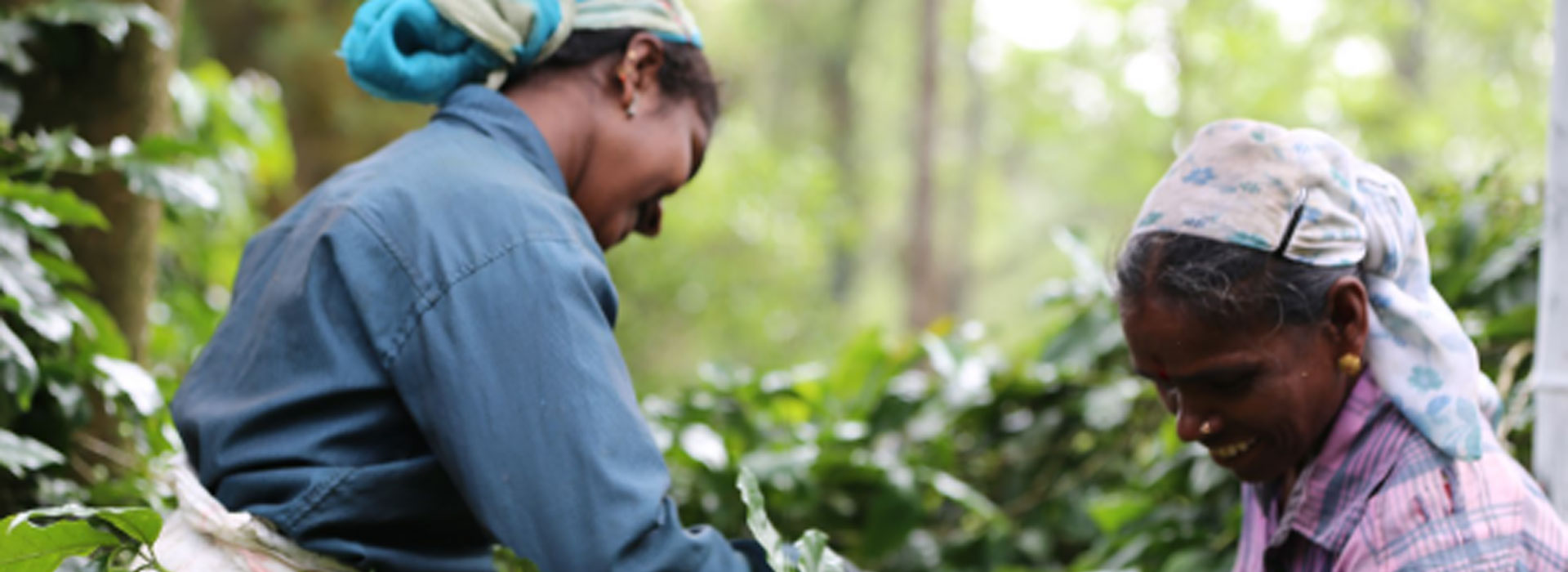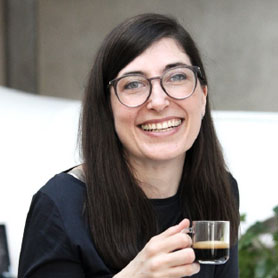Believe in a Better Way of Doing Business
As Global Sustainability Integration Manager at Nespresso, Lineke Roberts believes that creating connections with people is a powerful enabler. Here she explains how simplifying complexity, engaging employees and honesty are part of the sustainability story.


Lineke Roberts
Global Sustainability Integration Manager at Nespresso, Switzerland
Q.
How have your previous roles influenced your current position in sustainability, and how do you see it progressing?
My background is in legal and data, mainly governance, change management and more technical aspects. When I became a parent, I wanted my career to have a more meaningful impact. Initially, I didn’t think I had the skillsets required to succeed in sustainability. What I did have was motivation and a love of working with people. But when I did join the sustainability community, I found that, like me, people were from all walks of life, which is what makes the sector so dynamic. I now see that my previous experiences are invaluable as my role in sustainability involves a lot of data management, people engagement and certification complexities. I have also been able to leverage my ability to simplify complex topics to improve employee engagement and support the integration of sustainability. The need to focus on the people component of sustainability is often underestimated. Companies have ambitious targets to reach net zero, but you can’t achieve those without managing the cultural changes required to get every employee to do their part. A big part of my role is about winning hearts and minds. For example, earlier this year we introduced sustainability elements into our company reward and recognition scheme to encourage personal responsibility for helping Nespresso achieve our sustainability objectives. Of course, there’s only so much you can do with passion and hard work at ground level. It’s also necessary to have strong leadership that recognises the answers are not always readily available and fosters an innovative and agile company mindset that allows for uncertainty. I believe that learning through doing and being brave enough to risk mistakes is an essential part of the progression.
"Companies have ambitious targets to reach net zero, but you can’t achieve those without managing the cultural changes required to get every employee to do their part."
– Lineke Roberts, Global Sustainability Integration Manager at Nespresso
Q.
Sustainable coffee farming is gaining attention for cutting-edge solutions. What is Nespresso’s approach?
By having full visibility of our supply chain, from the coffee bean right through to the cup and even beyond, we have several opportunities to make a positive impact and champion innovation. For example, the Nespresso AAA Sustainable Quality Programme, which celebrates its 20th anniversary next year, supports over 120,000 farmers in becoming more resilient to climate change while conserving the natural resources they need to thrive. Every year we have the Farmers Awards, where we recognise and reward farmers from each country of origin for their commitment to sustainability. Often these commitments involve innovative ways to increase biodiversity or guide others in their communities to adopt sustainable practices. Meeting them in person and hearing their stories is truly awe-inspiring. The reaction of standing ovations to tears in the audience when they take their place in the venue is a priceless moment. On the other side, we are constantly challenging ourselves on how we can embed circularity and have a positive impact even at the end of the product lifecycle. Our different markets have shown remarkable innovation in this regard, creating locally relevant initiatives like the rice projects in several of our European markets where used coffee grounds are donated to enrich compost to grow rice. The entirety of the harvested rice is then given to local food banks. This is just one of many ways we aim to use our value chain to make a positive impact.
Q.
What impact is technology having on sustainability ambitions?
Technology and data are having a transformational impact on many aspects of our lives, and sustainability is no different. The need to effectively manage the volumes and variety of sustainability data is both critically important and a considerable challenge - whether carbon accounting or monitoring gender equality metrics. But finding one technological solution for every aspect of sustainability data is still a dream. So currently, it’s a case of using technology to collate separate strands of information to gain a complete picture of sustainability activities.
Beyond data management, there are many opportunities to leverage digital innovations, such as a recent example where consumers could scan a QR code and follow the journey of their Congolese coffee. There is little doubt that the use of technology for transparency, traceability and provenance of products will become increasingly important and, through the use of easy-to-understand sustainability stories, we can help customers become more aware of how their choices have an impact.
"There is little doubt that the use of technology for transparency, traceability and provenance of products will become increasingly important."
– Lineke Roberts, Global Sustainability Integration Manager at Nespresso
Q.
Where do you stand on policy and regulation versus the ability of companies to step up and get things done?
I think governments try their best, but when you pull one regulatory lever to solve a problem, you generally create an obstacle in another area. It’s the nature of change and the fact that everything is so intrinsically linked. But I’m optimistic when seeing companies believe in a better way of doing business and step up to the plate to champion a balance between purpose and profit. But it’s not easy as becoming more sustainable in some cases may involve completely changing your business model. Multinationals, for example, definitely have a role to play working with or influencing other players which, due to their size, can often have a greater impact. But it can take a juggernaut to change well-established practices. Whereas smaller companies have the agility to change more quickly, yet may have fewer resources to invest in their sustainability ambitions. Generally, a good approach to regulation is to ultimately aim for compliance with the highest standards possible because it’s often only a matter of time before it becomes the norm. One area both regulators and businesses can draw inspiration from, and put more effort into, is empowering communities. In terms of putting regulatory requirements or company initiatives into action, I think we hit a real sweet spot on putting the ability to drive change in the hands of people. Again, it’s not easy, but working with communities can help multiply sustainability efforts and, importantly, encourage a group rather than an individual shift in behaviour, which can be much more powerful.
"While evidence shows that women need to work harder to prove their value, what’s vital is that we encourage women to be women. To be successful doesn’t mean changing who you are. "
– Lineke Roberts, Global Sustainability Integration Manager at Nespresso
Q.
What are your views on diversity and leadership in the sustainability sector?
I have experienced the sector to be quite diverse, with many passionate individuals from all walks of life. Working in a sector where we don’t have all the answers means there is a need for people from many different experiences and disciplines, whether engineering, safety, or operations. The key is to bring what you have to the table. In my case, I had data and legal experience, which really adds value to my role. Sustainability needs people with courage and conviction, willing to problem-solve and comfortable with failure. It’s a sector where we have so much scope for positive impact when we collaborate, listen to and learn from other perspectives along the way. The gender ratio in sustainability leadership is where I’d like to see improvements. While evidence shows that women need to work harder to prove their value, what’s vital is that we encourage women to be women. To be successful doesn’t mean changing who you are. Bringing emotion and compassion to the table adds a different dimension that says it’s okay not to know the answers and that it’s okay to be overwhelmed sometimes. There’s power in honesty for both men and women. Surely that’s a more sustainable way of working?